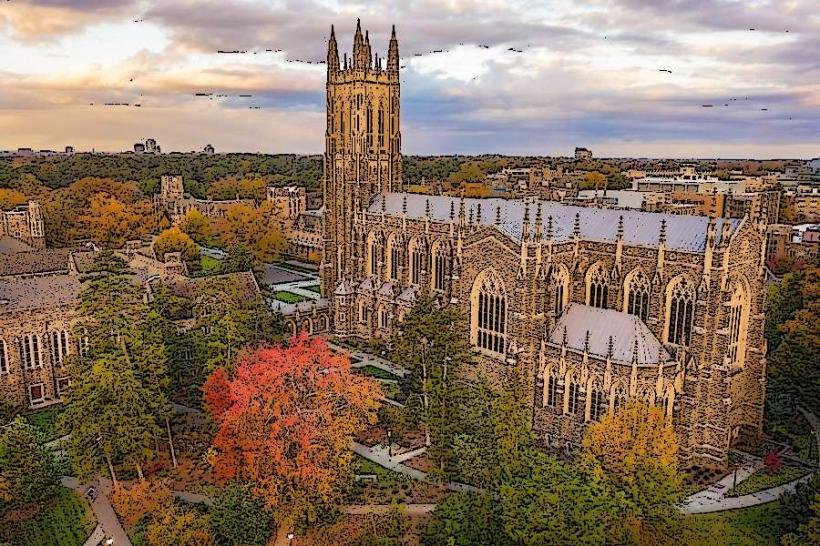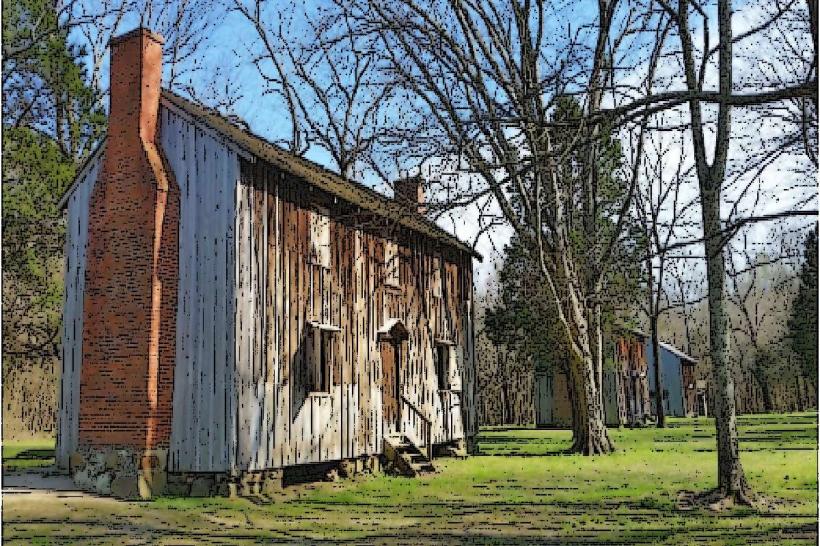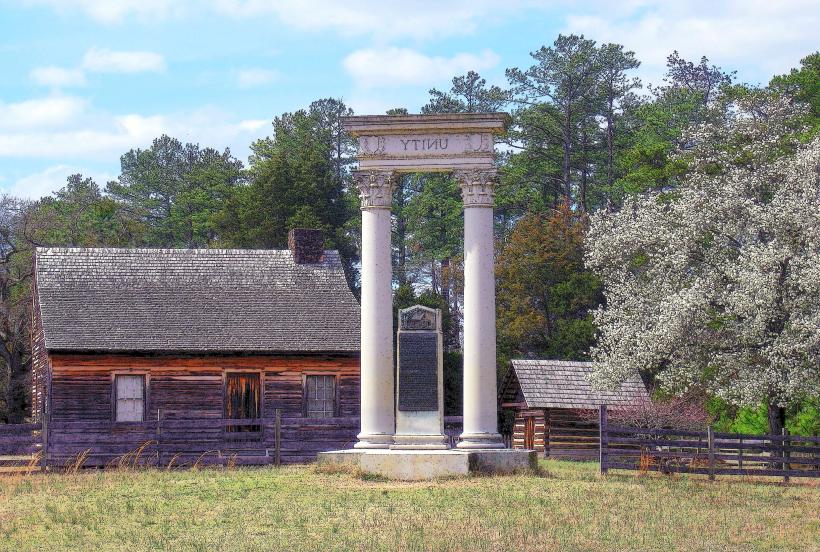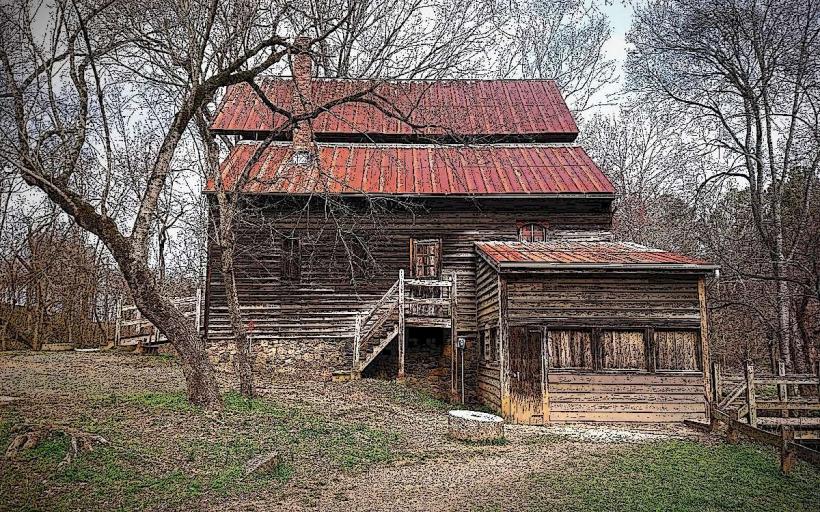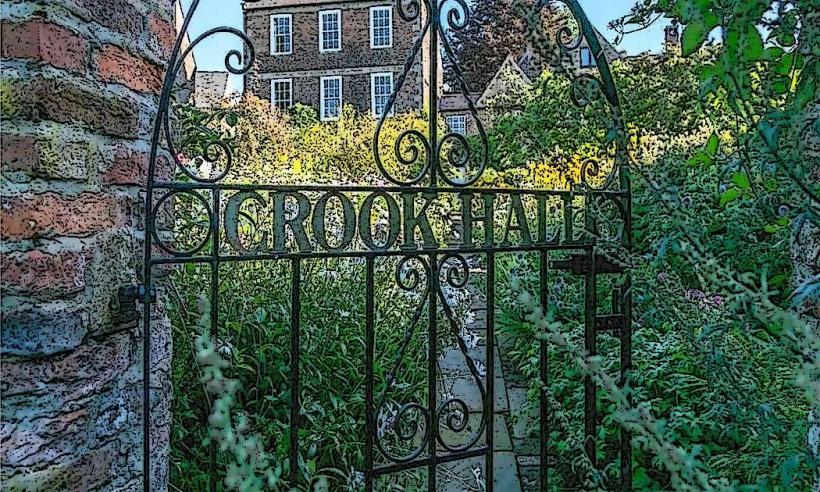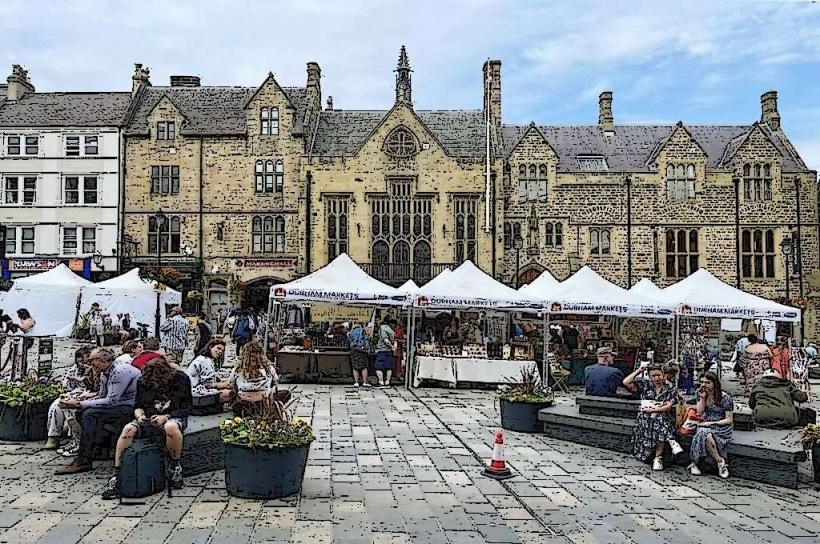Information
Landmark: Duke Homestead State Historic SiteCity: Durham
Country: USA North Carolina
Continent: North America
Duke Homestead State Historic Site, Durham, USA North Carolina, North America
Duke Homestead State Historic Site is a preserved 19th-century tobacco farm located in Durham, North Carolina. It preserves the original home and outbuildings of Washington Duke and his family.
Visual Characteristics
The site features a collection of wooden structures, including a two-story farmhouse, a tobacco barn, a curing barn, and a smokehouse. The farmhouse is painted white with dark green shutters and a gabled roof. The tobacco barn is constructed of rough-hewn logs, and the curing barn is a simple wooden frame structure. The grounds are characterized by open fields and mature trees.
Location & Access Logistics
Duke Homestead is situated at 2828 Duke Homestead Road, Durham, NC 27704. It is approximately 3 miles northeast of downtown Durham. Access is via Duke Homestead Road, which connects to Guess Road. Ample free parking is available on-site. The site is accessible via GoDurham bus route 7, with a stop located within walking distance.
Historical & Ecological Origin
The Duke Homestead was established by Washington Duke in 1852. It served as the family's primary residence and the center of their tobacco farming operations. The site represents a typical antebellum farmstead in the Piedmont region of North Carolina. The land is characterized by fertile soil suitable for agriculture.
Key Highlights & Activities
Visitors can tour the original Duke family farmhouse, which is furnished with period artifacts. The site includes a tobacco barn demonstrating the curing process and a smokehouse. Interpretive exhibits detail the history of tobacco farming and the Duke family's rise to prominence. Ranger-led programs are offered on specific days.
Infrastructure & Amenities
Restrooms are available in the visitor center. Limited shaded areas are present around the main buildings. Cell phone signal (4G/5G) is generally available. No on-site food vendors are present; however, dining options are available in nearby downtown Durham.
Best Time to Visit
The best time for photography is during the morning or late afternoon when sunlight provides optimal illumination of the structures. The site is open year-round, with pleasant weather typically occurring from April to October. No specific tide requirements apply.
Facts & Legends
Washington Duke began his tobacco business with a small pouch of tobacco and a mule. The Duke family later founded the American Tobacco Company and were instrumental in the establishment of Trinity College, which eventually became Duke University.
Nearby Landmarks
- Durham Bulls Athletic Park (3.5km Southwest)
- Sarah P. Duke Gardens (4.0km Southwest)
- Museum of Life and Science (2.0km West)
- Bennett Place State Historic Site (4.5km Northwest)


